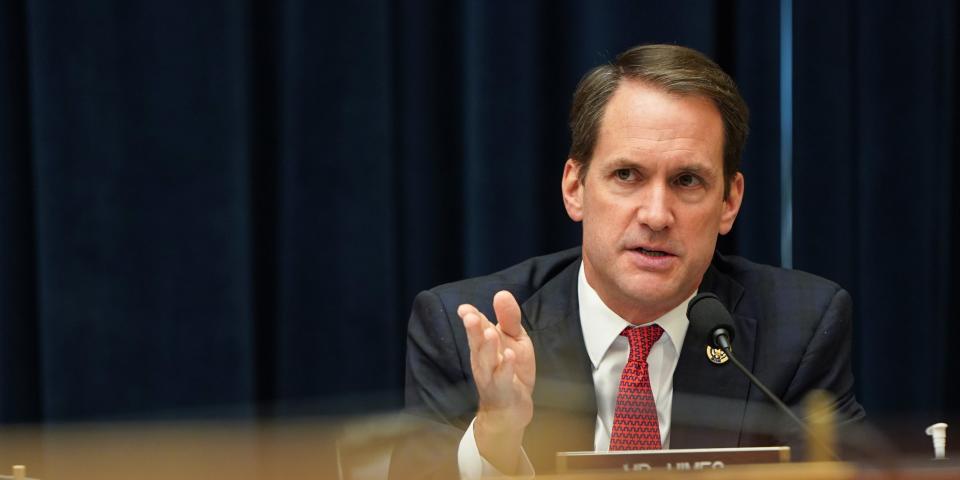Stocks will have to plummet like in 2008 for the GOP to raise the debt ceiling, House Democrat says

Stocks have to crash for the GOP to raise the debt limit without conditions, Rep. Jim Himes said.
The key House Democrat drew a parallel to 2008, when Congress was debating the bank bailout.
The Dow sank 7% after lawmakers initially sank the bill, but they passed it four days later.
Stocks may have to crash if Congress is to resolve the debt ceiling crisis, Rep. Jim Himes, D-Conn., said.
In an interview with The Hill TV, the former Goldman Sachs vice president and current member of the House Financial Services Committee warned that Congressional Republicans are too fixated on pursuing spending cuts, and only a market tumble will break the stalemate with their Democratic peers.
"Sadly, I think it's going to take that kind of market signal to wake my ideologically frenzied friends up and just say, 'Let's move on and do some real stuff,'" he said.
He compared the situation to 2008's Troubled Assets Relief Program, a piece of legislation providing $700 billion to banks during the global financial crisis.
But despite earlier warnings that the bill was necessary to prevent a broader economic collapse, it still failed to get enough votes. In response, the Dow Jones Industrial Average sank 7% and the Nasdaq tumbled more than 9% as stocks lost $1.2 trillion in a day, causing lawmakers to pass the bill four days later.
"I fear that this ends the way the famous TARP, the Troubled Assets Relief Program, got passed in 2008. And that is when the markets finally say, 'You guys have got to stop screwing around,'" Himes said.
The US government hit its $31.4 trillion debt ceiling in January, and the Treasury is expected to run out of money by the summer. Speaker of the House Kevin McCarthy has proposed a deal that raises the limit in exchange spending cuts, while the Biden administration has rejected any cuts.
With few signs of a political breakthrough on a deal, credit default swaps on US debt rose to their highest in over a decade, while three-month Treasury bills saw their highest yield since 2001.
Meanwhile, the Hill reported that some moderate Democrats are willing to negotiate on the debt ceiling. But Himes said, "I would tell the president, 'You can negotiate. [But] there's a reason we don't negotiate with hostage-takers.' Because you'll be doing it again real soon."
Read the original article on Business Insider
